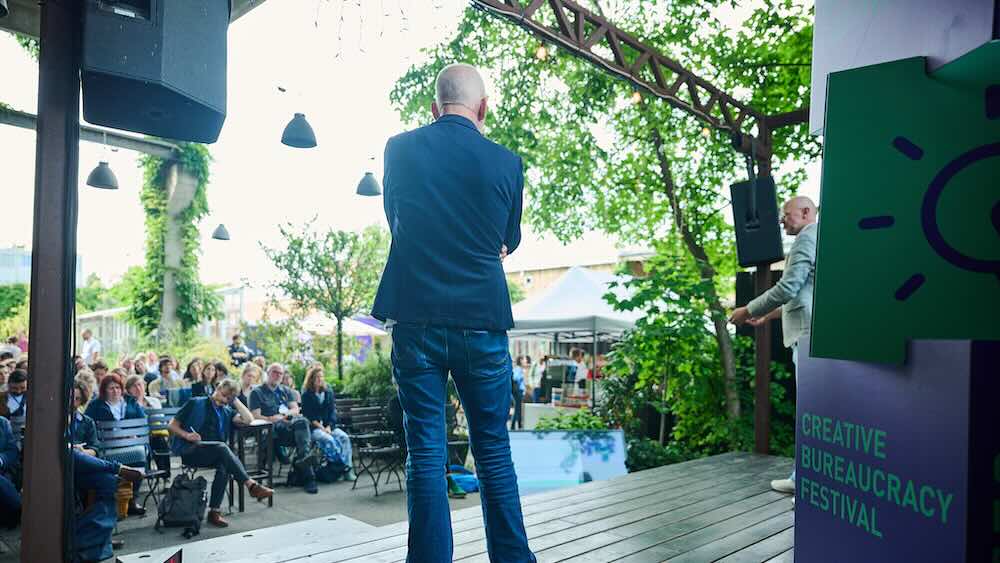


People travel to Berlin from all over the world to attend The Creative Bureaucracy Festival.
Although it’s held each year in early June, the one-day Creative Bureaucracy Festival — which attracts participants from government, politics, civil society, and other public administration organizations around the world to Berlin — starts in October or early November, with a call for participation. “We basically ask creative bureaucrats all over the world to submit their most creative projects,” said Johanna Sieben, the director of cluster public sector and engagement / deputy managing director for the Berlin-based Falling Walls Foundation, the host institution for the festival. “That’s when we start the festival year, because it’s really something that’s important to us — that people are engaged throughout the year and keep on with the conversation.”
Johanna Sieben
All of the submissions are judged by a jury, which picks out the most promising projects, Sieben said. “Then we do the Digital Kickoff, which is a combination of pitching videos from the projects that have been chosen by the jury and digital workshops.” Digital Kick-Off Day this year took place March 13, around three months before the festival on June 5, with 30 Project Showcases and 15 Digital Workshops from 15 countries. Around 1,500 viewers from around the world tuned in via livestream and 400 participated in the workshops.
The pitching videos were then put before a community vote — 6,500 votes were cast. In the end, six community voting winners and two jury favorites were invited to present on the Creative Bureaucracy Festival’s big stage. “The Digital Kickoff was born out of the years 2020 and 2021, where we had the digital events,” Sieben said. “We were like, ‘Okay, there are always going to be people who cannot travel to Berlin. We want to keep up some kind of digital format.’ The Digital Kickoff was born. We have kept it ever since because it is nice to engage an international audience — not everyone can fly here to attend a one-day festival.”
- Claim or renew your subscription to Convene.
- Want deep-dive insights on events delivered to your inbox? Sign up for our newsletters.
One of the winning projects this year stood out to Sieben — “it really impressed me the most throughout the years,” she said. The project came from Meghalaya, one of the northeastern states of India, which had a very high rate of maternal death. “It’s a rural area, the villages are far away from each other, and medical services are sometimes hard to reach,” she said.
“What the public and the local administration did is to start building a network, and a relatively simple one, where they would create a neighborhood taxi system — people with cars would drive the pregnant women to the next doctor. They would create safe houses in between where people could stay over the night on their way to a clinic — relatively simple services. It was mostly a communication thing between the different villages to see how to build up a network.
“They have managed to bring down the rate of maternal death by 50 percent in three years — it has had a massive impact,” Sieben said. “It’s not a crazy technological solution. It wasn’t that a lot of money went into [the project]. Just a really super creative team. They were like, ‘This can’t continue, and we know how it could work.’ They won and came to the festival.”
Michelle Russell is editor in chief of Convene.







